Bollard Buyer's Guide
In recent years, protection from vehicle intrusion, both intentional and unintentional, has become a hot button issue. There are numerous solutions to address the problem. These solutions come in the form of both improved site design and protective measures in the form of traffic control devices. One common and effective solution are Bollards. Bollards take many shapes, sizes, and colors and come in a variety of materials. In this Buyers Guide we are concerned primarily with those bollard designs that serve to provide security solutions for vehicle traffic control as well as pedestrian and facility protection in a wide range of applications such as; store fronts, health care facilities, bike paths, access roads, parking lots, government buildings, schools, and fire access lanes. TrafficGuard®, Inc. is an established US based company serving this market since 1999.
TrafficGuard®, Inc. bollards help solve vehicle access control problems in two categories: engineered collapsible, removable, fixed and light duty parking bollards as well as fixed and removable bollards crash tested to ASTM F3016. Each bollard has its own unique benefits and application indications.
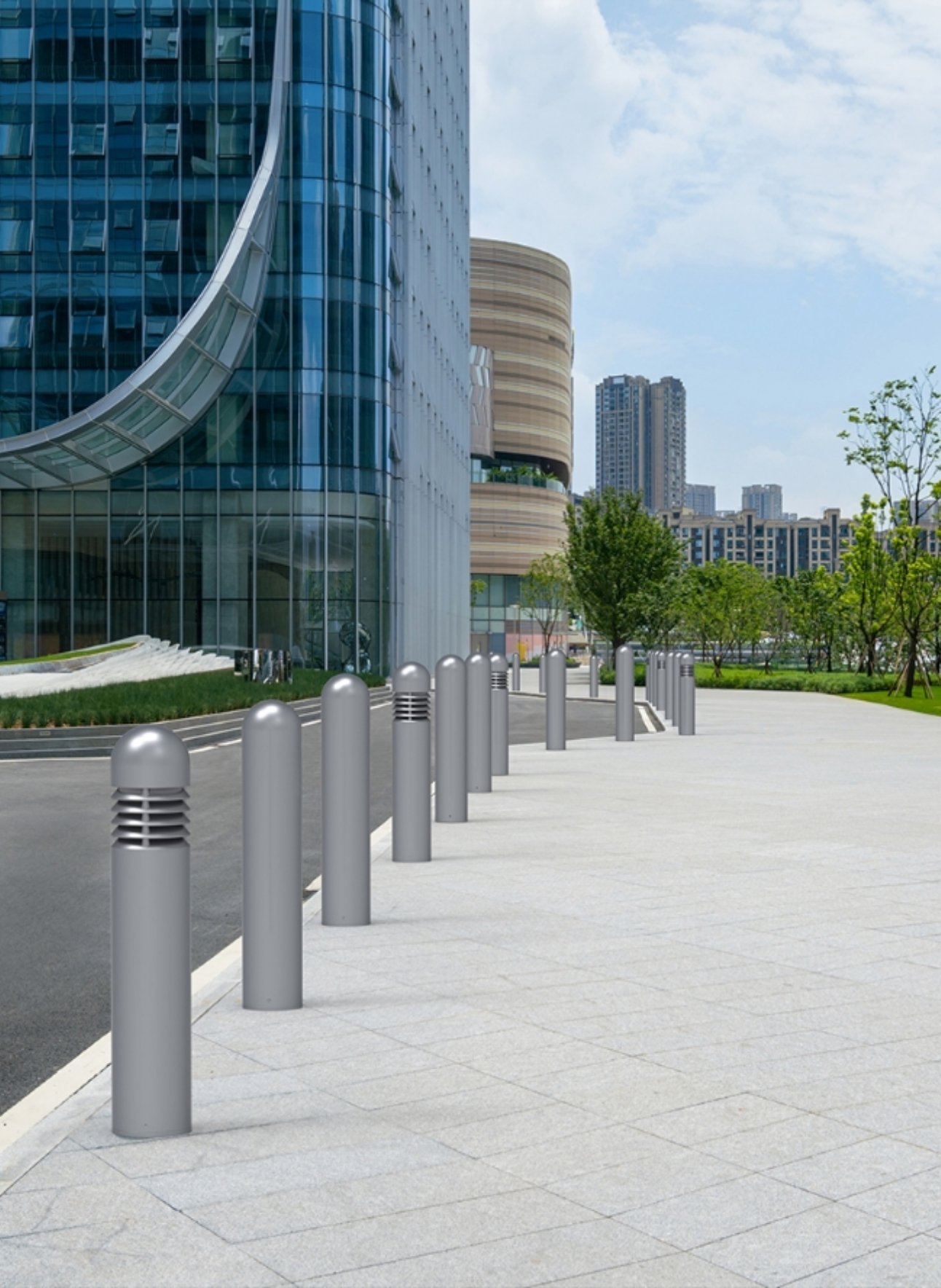
Goals for Your Bollard Installation
Bollard selection and placement based on weight (ease of deployment), speed and other site-specific factors should be given serious consideration before making a purchase. This may require a thorough analysis of the site by a traffic engineer, particularly in situations where the objective is pedestrian safety. It may also result in the selection of a different traffic control device altogether. Bollards can address a wide range of vehicle security issues, but they are not necessarily the correct solution for every application. Before making a purchase decision on a bollard, the buyer should ask some, if not all, of the following questions about the project:
- What is the objective of the bollard installation?
- Is this bollard a visual deterrent or will it be used to protect property and keep pedestrians safe?
- Will the application require full scale impact tested bollards? Further, what impact standard will be required?
- In the event that a crash tested bollard is required, how will they be deployed? (bollard post weight can pose a challenge.) How will they be stored?
- Will this bollard be used to warn users of approaching danger?
- Is the purpose of this bollard to allow access to maintenance and emergency vehicles while prohibiting access to all other vehicles?
- Are there any site-specific challenges, such as utilities, that may make installation difficult or require bollards be located elsewhere?
- What type of surface, such as asphalt or concrete are the bollards being installed into? This can impact how the bollard is installed, particularly in a crash tested solution.
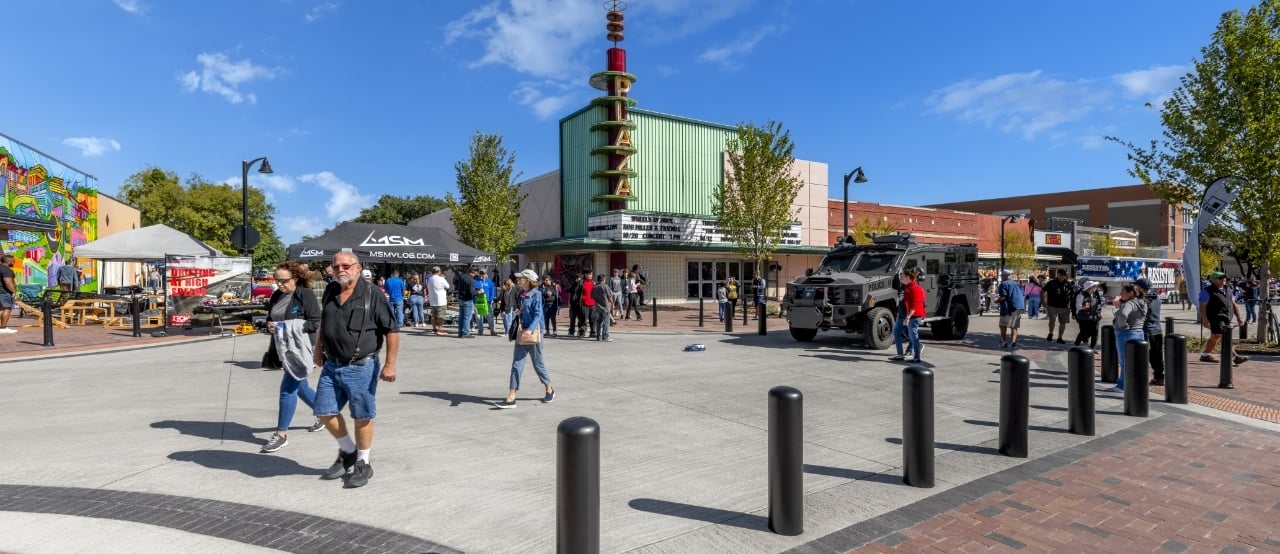
Bollard Visibility
Clearly understand the users of the area in which you will be installing your traffic control bollard. How will they be approaching it; on foot, by car, by bicycle or all of these? Bollard design, color, placement, reflective labels, pavement markings, and striping should all be considered in installation.
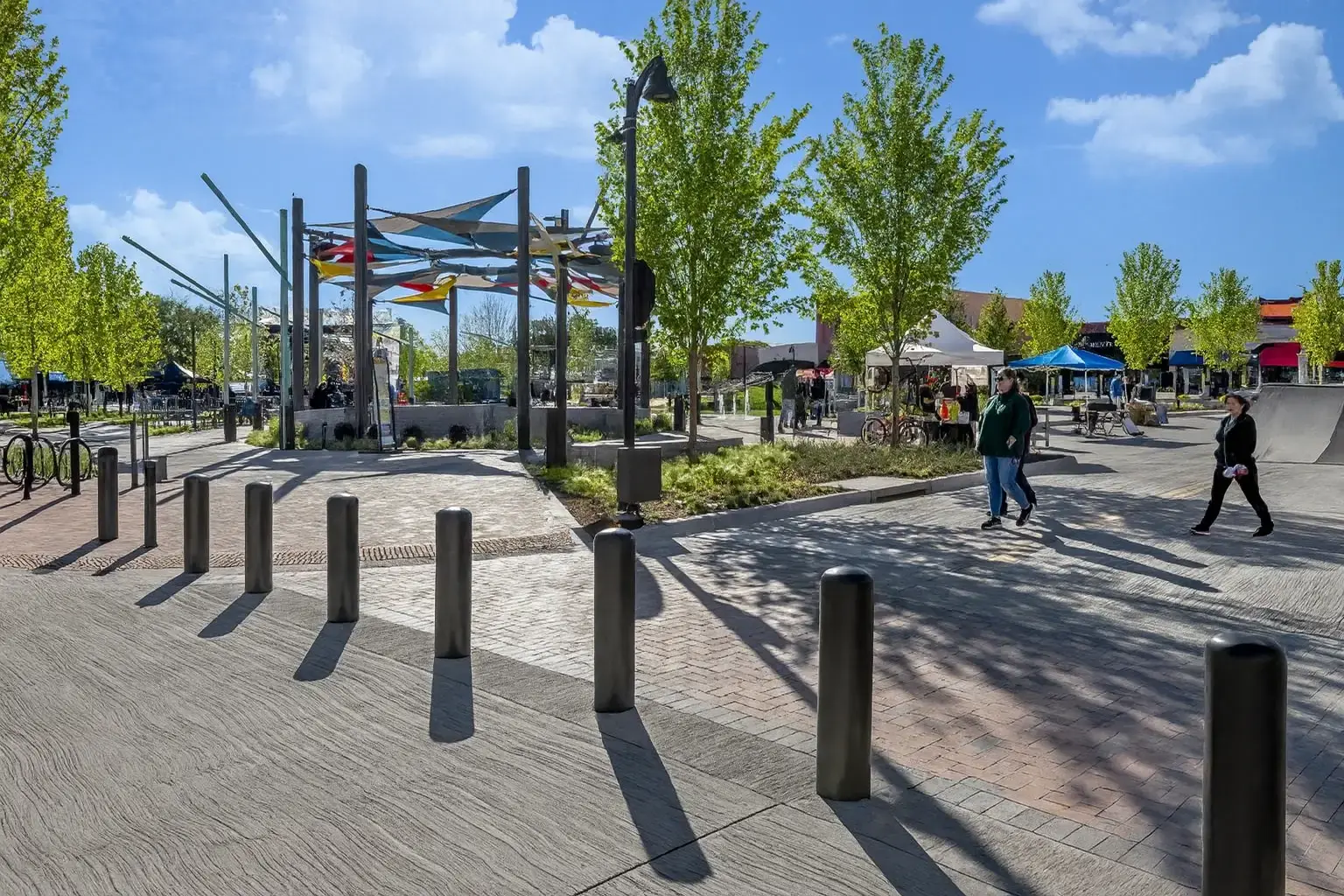
Bollard Standards
Currently there are two crash test standards developed by ASTM for vehicle perimeter impact barriers. ASTM F2656 is the test method to determine a barriers ability to stop 30, 40, and 50 MPH vehicular impacts from a 15,000 lb. vehicle. In recent years, driven by the increased frequency of low-speed store front vehicle incursions, ASTM F3016 was developed to address 10, 20 and 30 MPH impacts from a 5,000 lb. vehicle. While these standards are gaining acceptance, there are still many bollard installations that follow “best practices” with respect to spacing, placement, steel gauge and installation methods. There are also varying guidelines for pavement striping, location and proper spacing of bollards. Although TrafficGuard®, Inc. can assist in providing this information to purchasers of its products, the purchaser is ultimately responsible for the proper placement and installation of the bollards based on site specific conditions.
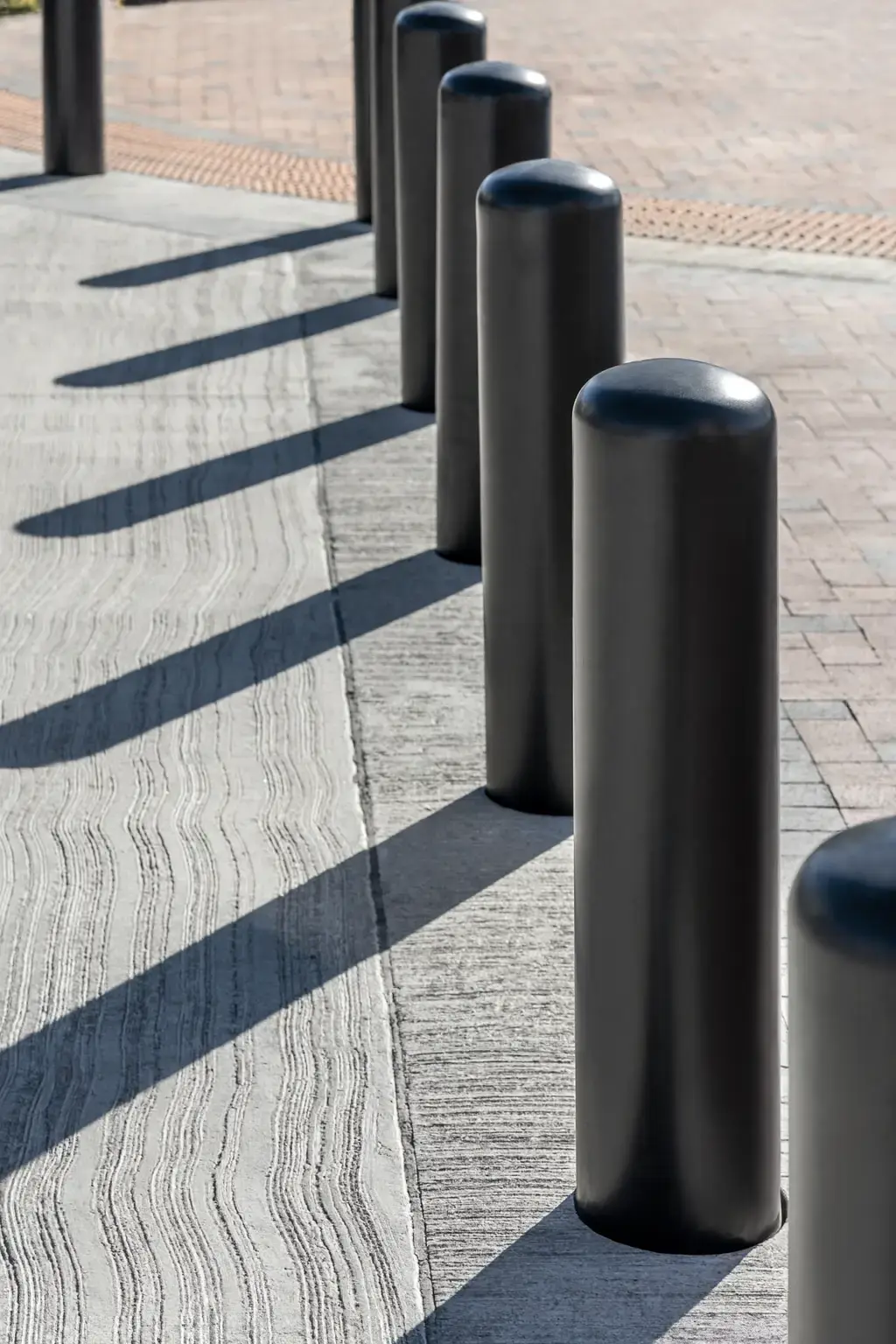
Bollard Safety
TrafficGuard®, Inc. is committed to safety in the installation and use of its product. However, as with any product, if it is not installed correctly or maintained properly, it can present certain risks. Please adhere to the following general guidelines upon purchasing a bollard:
-
Read and fully understand the installation instructions before attempting to install any TrafficGuard®, Inc. bollard.
-
In the event a crash rated bollard is purchased, it is critical that the installation is followed in detail. TrafficGuard® cannot ensure that a bollard not installed "as tested" will perform at the advertised speed.
-
Substitution of components may impair the proper function of TrafficGuard®, Inc. products.
-
If you need replacement parts, please contact TrafficGuard®, Inc. at 877-727-7347 or sales@trafficguard.net.
-
Unless the bollard is being used for vehicle access it should remain in the upright position (if the unit is collapsible) with the locking pin always locked in position.
-
Failure to lock the locking pin in place on collapsible bollards may cause the bollard to fall. Always lock the locking pin in place with a padlock.
-
Locking pin must always be secured with padlock when bollard is upright position.
-
If a removable bollard is removed for access, the lid should be secured, or filler piece put in place to ensure a flush surface and avoid a hazard.
-
For maximum effectiveness and safety of TrafficGuard®, Inc. bollard products, be sure to properly maintain bollards by replacing any damaged, corroded or missing components and reapply paint as required to maximize visibility.
-
To ensure visibility of bollards, be sure to apply all decals that are provided with the product and in the manner recommended by TrafficGuard®, Inc.
Bollard Design
The engineering involved in what appears to be a very simple product can determine a great deal about the appropriateness of your bollard selection in its safety, impact resistance, life expectancy and maintenance. TrafficGuard®, Inc. has every design reviewed by a professional engineer to understand and determine functionality, performance under load conditions, and maintenance issues. We always consider the long-term cost of owning our bollards in the material selection process.
MATERIALS
The materials available run the spectrum from cast iron to plastics. The primary materialsfound are steel tubing – round or rectangular painted, galvanized or stainless steel. Thegeographic location of the installation and the intended usage patterns should drive theselection process.
MAINTENANCE
All bollards will require some level of maintenance according to your choice of materialsand your unique environmental conditions. To ensure long term efficacy of a removablebollard, it is critical to follow the drainage procedure during the installation process toensure the bollard does not sit in water over long periods.
INSURANCE
The bollard manufacturer you select should be required to provide you with proof of liabilityinsurance.
CRASH TESTED DOCUMENTATION
Before purchasing a crash tested bollard, always request a crash test summary from anaccredited testing agency.
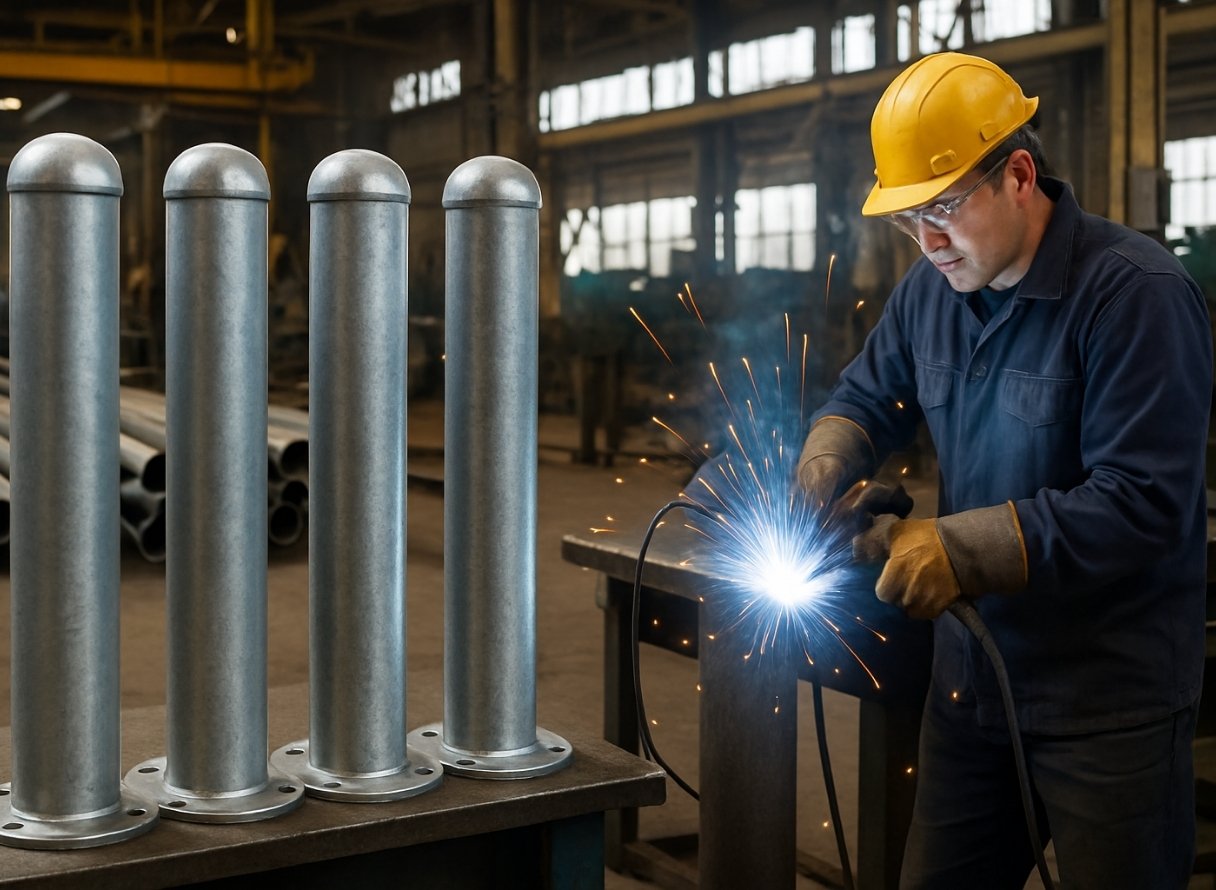
Why Buy A Manufactured Product?
- Engineered safety features in every product
- Replacement parts readily available
- Product quality, both in material and finishes
- Quick shipment
- Functionality every time
- Warranty
- Product Liability Insurance
- Scalability – 1 or 1,000 units can be shipped quickly

